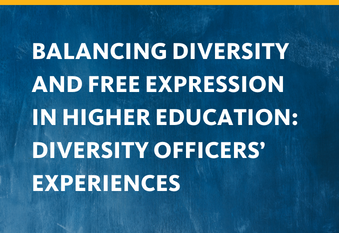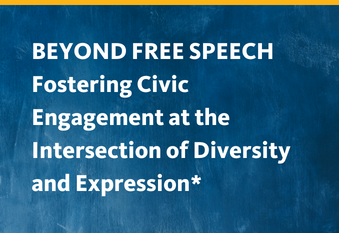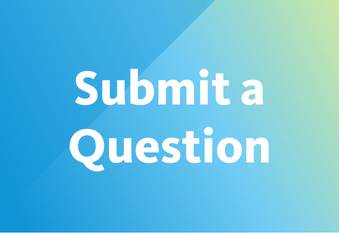Ask the Experts
Diversity and Expression
What Steps Can Campuses Take in Order to Enhance Both Free Expression and Diversity and Inclusion?
 Carlos E. Cortes, Edward A. Dickson Emeritus Professor of History, UC, Riverside
Carlos E. Cortes, Edward A. Dickson Emeritus Professor of History, UC, Riverside
2018-19 Fellow, UC National Center for Free Speech and Civic Engagement
Enhance both? Can’t happen, for a simple reason: diversity and “free” expression are not compatible. Why? Because remaking the speech environment to reduce anti-inclusivity speech is a fundamental goal of the diversity movement. In fact, for many diversity advocates, remaking speech has become even more central over the past decade, witness the ascendance of such ideas as microaggressions, racelighting, and misgendering.
The U.S. Constitution protects against government interference with speech. But as a walk-around daily reality, free expression does not exist because there are myriad other speech restraints (consider government-permitted internet “content moderation”). Once you get past the omnipresent virtue-signaling of free speech absolutists and many diversity advocates, the real-world challenge involves balancing inclusivity and robust (not free) speech.
Some college websites proclaim (usually separately) an institution’s commitment to both diversity and free speech, apparently unaware that they are juxtaposing conflicting principles. So, as a diversity consultant, here’s what I now advise.
Before proclaiming anything, universities should simultaneously address two aspirational (not constitutional) questions:
(1) In order to foster greater equity and inclusivity, what limitations on speech should be considered?
(2) In order to foster robust speech, in what respects should personal discomfort and even offense be recognized as inevitable?
After that, factor in constitutional constraints on institutional aspirations. This two-stage process can lead to more coherent institutional public statements, better grounded administrative decision-making, and more constructive campus discussions of these two important imperatives: robust speech and inclusive, equitable diversity.
 Jennifer L. Lambe, Associate Professor, Communication, University of Delaware
Jennifer L. Lambe, Associate Professor, Communication, University of Delaware
2020-21 Fellow, UC National Center for Free Speech and Civic Engagement
Campus leaders should view these two important values as intersecting, rather than being inherently at odds with one another. Institutions of higher education do not get to choose between free expression and diversity and inclusion; both are essential elements of a healthy and vibrant community.
In practice, this means when hate or bias incidents do occur, campus leaders should look for ways to demonstrate support for the targets of this expression while maintaining a commitment to allowing speech, especially in public areas on campus. The well-established First Amendment principle of content-neutrality should be respected. But this does NOT mean that universities have to remain value-neutral about hate-filled or biased speech. While our society generally focuses on the costs associated with restricting expression – which are undoubtedly high – we do not often acknowledge there is a cost associated with allowing expression, too. And that cost is frequently borne by groups who are already marginalized.
To foster both free expression and diversity and inclusion, there should be regular proactive programming that allows campus constituents to consider these issues in all their complexity at times when emotions are not running high. It is important to reflect on why freedom of expression is important to protect, and to understand the nature of harms that can result from hate and bias. Campus leaders should also encourage reactive efforts, including creative responses to hate and bias incidents that seek to minimize the negative effects hate and bias incidents can produce.
 Dania Matos, Vice Chancellor for the Division of Equity & Inclusion, UC Berkeley
Dania Matos, Vice Chancellor for the Division of Equity & Inclusion, UC Berkeley
As a legal scholar-practitioner from Puerto Rico, I’ve long explored and delved into the juridical formation of the continental United States. In particular, as a Black-Latina, the freedoms “guaranteed” in the Constitution of the United States to all in theory but not in practice have formed a lot of my work in anti-oppression thinking and anti-oppression action.
First, we must define ‘free speech’. It refers to the guaranteed individual right to articulate ideas and opinions without fear of government retaliation, censorship, or other sanction. Freedom of expression refers to the right to hold opinions without interference and includes the “freedom to seek, receive and impart information and ideas of all kinds and through all mediums. It also includes behaviors that express a person’s opinion, point of view or identity.” (International Standards on Freedom of Expression Universal Declaration of Human Rights Article 19)
Campuses should be committed to the values of freedom of expression because education’s fundamental value and cornerstone is an experience where diverse viewpoints and ideas are welcomed, freely offered, critiqued, and expressed. An equally important value on our campuses should be supporting and sustaining a diverse and inclusive community. The values of freedom of expression and inclusive communities should not be in conflict with one another, but sometimes in the lived experiences they are, particularly when the freedoms of expression cause hurt and harm to others, It is essential to create environments where we can surface the critical issues affecting the lived experiences of those historically underrepresented in higher education and lead with values that affirm all humanity.
We have to understand our history. Freedom of expression is an opportunity for those of us historically silenced to use our voice to change systems of oppression that others may not want to pay attention to. We must acknowledge both freedom of expression, the hurt communities may be experiencing from it, and the weariness experienced by those always having to raise the issues and bring their pain to the forefront. Bell hooks reminds us that the purpose of education is critical thinking. And we must support students, faculty, and staff in using their voice to counter oppression and the freedoms of expression that cause harm. In this way, you are working alongside the community and centering them.
 Paulette Russell, President, National Association of Diversity Officers in Higher Education
Paulette Russell, President, National Association of Diversity Officers in Higher Education
Diversity officers (DO) in higher education participated in the study “Balancing Diversity and Free Expression in Higher Education: Diversity Officers’ Experiences” conducted by Dr. Jennifer L. Lambe, a 2020-2021 Fellow, National Center for Free Speech and Civic Engagement. As president of the National Association of Diversity Officers in Higher Education, attorney, and DEI professional, I know the difficulty experienced by institutions seeking to balance free expression as an institutional value and create a sense of belonging within the campus community. When the DO is called upon to respond to campus disruptions resulting from hate and bias incidents and must advise individuals and groups who are the target of expressions of hate, too often in the vilest of terms, that the expression is protected, we must also address the impact of the words.
As diversity officers noted in the study, the first response of an institution to such incidents should be one that leads with acknowledging the harm and identifies actions to be taken that reflect a seriousness of conviction to address the harm. Steps include transparency of disciplinary processes for “instigators,” the implementation of sustainable intergroup dialogue programs, and inclusion of the community in identifying effective approaches for response to incidents. These actions, plus others can and should be implemented before a crisis. Lessons learned from a global pandemic and the murder of George Floyd that disproportionately impacted Black and brown communities include the lesson that words, minus effective strategies to address the harm resulting from bias and hate, are just that, words.


